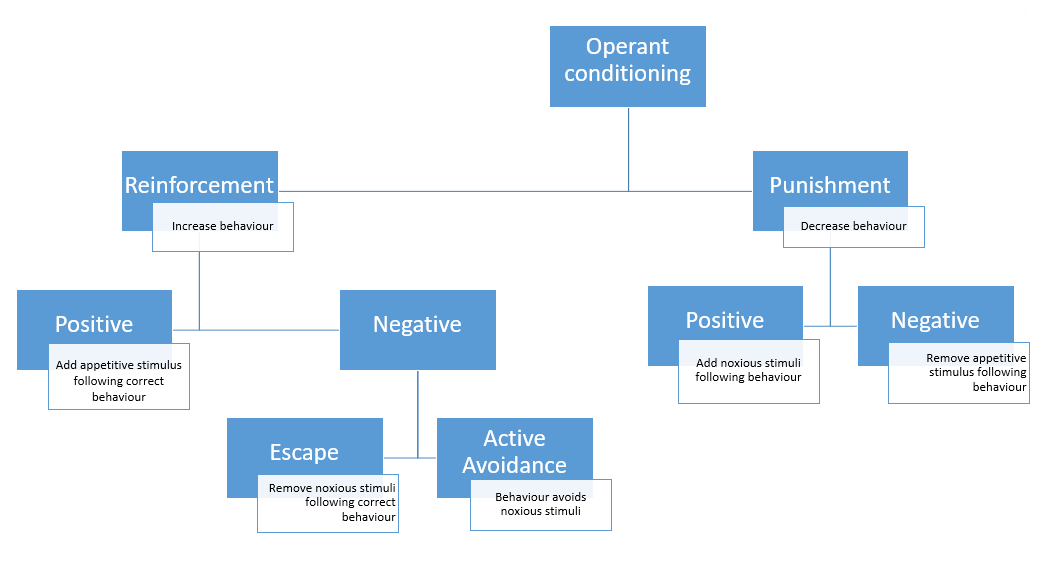How students learn
| Ask us |
Tell us |
 |
 |
Behaviourism
The basis of the behaviourism is the theory that humans can be trained to produce certain behaviour in response to certain stimuli, and the more often the response is stimulated, the stronger is the training.
In more advanced theories of behaviourism, reinforcement is seen
as the focus, and the idea is that the right applications of negative and
positive reinforcement will result in student learning (Skinner’s operant conditioning).
Behaviourism has had a bad rep for a long time, because it's opften viewed as a low level approach to training and education, that relies on just producing a behaviour - an external response - without considering the internal processes that produce the behaviour. Many people see this as being on the same level as training a dog, without any consideration of free will and choice.
However, there's no denying that throughout our lives (especially when we are very young), we learn a lot of what we know from the stimulus-response model.
Skinner noted that behaviorism is often is used by school teachers, who reward or punish student behaviours (Funderstanding, 2002).
In fact, the premise underlying much authored elearning is based on the concept of rewarding correct answers - which is a form of behaviourism, but at a higher level.
